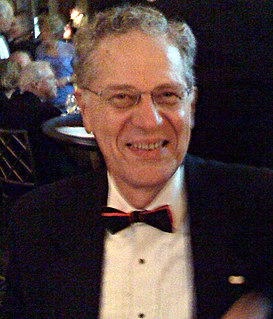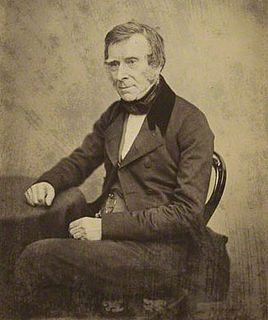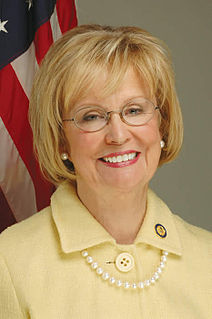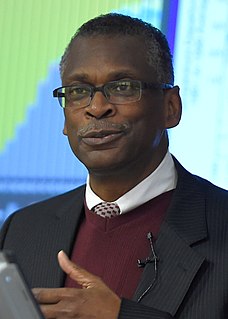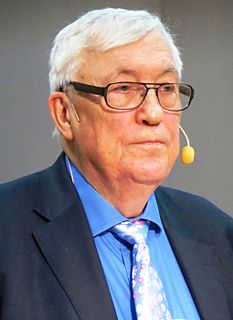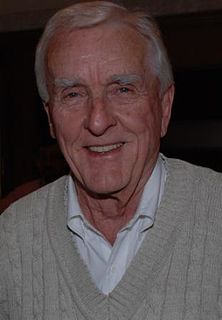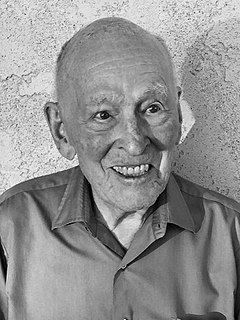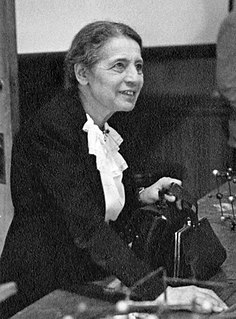A Quote by Edward Teller
Today, nothing is unusual about a scientific discovery's being followed soon after by a technical application: The discovery of electrons led to electronics; fission led to nuclear energy. But before the 1880's, science played almost no role in the advances of technology. For example, James Watt developed the first efficient steam engine long before science established the equivalence between mechanical heat and energy.
Quote Topics
About
Advances
After
Almost
Application
Before
Being
Between
Developed
Discovery
Efficient
Electronics
Electrons
Energy
Engine
Established
Example
First
Fission
Followed
For Example
Heat
James
James Watt
Led
Long
Mechanical
Nothing
Nuclear
Nuclear Energy
Played
Role
Science
Scientific
Scientific Discovery
Soon
Steam
Technical
Technology
Today
Unusual
Related Quotes
It is attention, more than any difference between minds and men.-In this is the source of poetic genius, and of the genius of discovery in science.-It was that led Newton to the invention of fluxions, and the discovery of gravitation, and Harvey to find out the circulation of the blood, and Davy to those views which laid the foundation of modern chemistry.
Evolution is the fundamental idea in all of life science, in all of biology. The key to our being here now is time, 4.54 billion (Earth) years of time. Nuclear fission wasn't discovered until long after Charles Darwin and Alfred Russell Wallace published their original books and papers, for example. Our ability to measure atomic masses wasn't developed until long after their deaths. These features of nature enabled us to reckon the age of the Earth and compare it with speciation rates here.
The US in some ways has been the best. Who figured out shale gas? Although that wasn't a good thing [for CO2 levels], it was very innovative. It's led to low-cost energy. Who figured out nuclear power? Largely the United States. Once you get past the steam engine, which is mostly British, then the US has been at the center of most of the energy things that have happened.
The technologists claim that if everything works [in a nuclear fission reactor] according to their blueprints, fission energy will be a safe and very attractive solution to the energy needs of the world. ... The real issue is whether their blueprints will work in the real world and not only in a "technological paradise."... Opponents of fission energy point out a number of differences between the real world and the "technological paradise." ... No acts of God can be permitted.
I think the best and perhaps only sensible policy for the future is to prepare society for change and be prepared to adjust. In 25 years, we'll have a world with some 9 to 10 billion people that will require twice as much primary energy as today. We must embrace new science and technology in a more positive way than we presently do in Europe. This includes, for example, nuclear energy and genetic food production to provide the world what it urgently needs.
The best ideas aren't hidden in shadowy recesses. They're right in front of us, hidden in plain sight. Innovation seldom depends on discovering obscure or subtle elements but in seeing the obvious with fresh eyes. This is easier said than done because nothing is as hard to see as what's right before our eyes. We overlook what we take for granted. Billions of tea drinkers observed the force of steam escaping from water boiling in a kettle before James Watt realized that this vapor could be converted into energy.
Certain elements of today's ecological crisis reveal its moral character. First among these is the indiscriminate application of advances in science and technology. Many recent discoveries have brought undeniable benefits to humanity. Indeed, they demonstrate the nobility of the human vocation to participate responsibly in God's creative action in the world. Unfortunately, it is now clear that the application of these discoveries in the fields of industry and agriculture have produced harmful long-term effects.
During my span of life science has become a matter of public concern and the l'art pour l'art standpoint of my youth is now obsolete. Science has become an integral and most important part of our civilization, and scientific work means contributing to its development. Science in our technical age has social, economic, and political functions, and however remote one's own work is from technical application it is a link in the chain of actions and decisions which determine the fate of the human race. I realized this aspect of science in its full impact only after Hiroshima.

